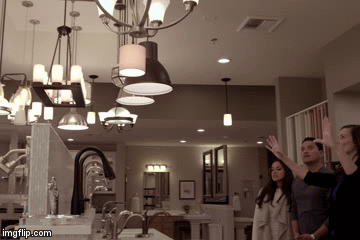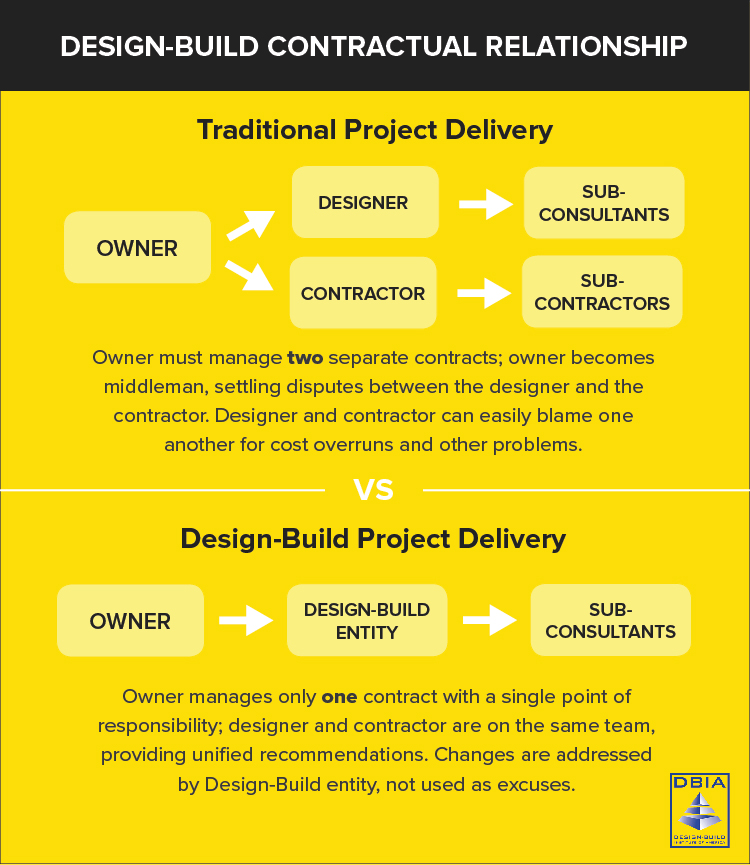
Everyone knows about interior designers, architects, and contractors; and on some level, everyone knows you probably need at least one of each if you want to build a house or a building. What most people probably don’t realize, however, is that they can have the best of all three worlds (and a ton of other perks) if they hire a design-build firm.
This is both your weakness and your strength — and today, we’re here to make sure it’s the latter.
There are three ways you can make your business stand out (and snag the right client every time):
- Against design firms and contractors
- Against other design-build firms
- Through customer service
In this article, we’ll tackle the first one.
Differentiate Your Design-Build Firm From Design Firms and Contractors
Let me start this off by saying that design-build is not better than just design firms or just contractors in any absolute sense.
However, a design-build firm has its innate advantages which you’ll need to communicate clearly to clients. And by “clearly,” I mean it should answer the question “What’s in it for me?”
1.) Consolidation
Explain to your client that architects don’t necessarily have construction experience, which means after designing the building, either you or the architect will have to hire contractors to build it. And that comes after a bidding process.
Building a house from the ground up is daunting enough — having to conduct a bidding, and then managing several different contracts, is probably going to be stressful for everyone involved.
On the other hand, a design-build firm will cover the architectural, building, and interior design components. That means just one contract to deal with: yours.

Not only that, but FF&E specification and purchase decisions take everything into account. To quote one of our users, “For the most part, we are making selections based on budgets and feasibility vs. pure design. For example: I’m not just looking for a shower head that is beautiful, I am looking for a shower head with a trim kit and a readily available valve that is in budget.”
2.) Better Chances of Finishing on Time
No one likes projects to drag on forever, and everyone promises a quick turnaround. As a design-build firm, there are three things you can use to build your case:
- A design-build firm will usually be run by an architect that has joined the construction side of the equation, which means less friction or miscommunication between the two areas (ie, fewer delays and less time wasted).
- You probably have also worked with your team members on several other projects. That means you know each other’s working and communication styles — again, less friction and miscommunication, and fewer delays.
- Unlike designers who charge by the hour, it is definitely to your firm’s advantage to finish a project as quickly as possible and move on to the next one.
This last item is a double-whammy. Not only does it make a good argument to support your promise of a quick turnaround, it also gives the client a sense of transparency, which builds trust.
That said, you’ll still need to make sure that your client doesn’t have unrealistic expectations.
3.) Fixed Price
Ahh, budget overruns. It’s everyone’s favorite complaint, and possibly the biggest source of mistrust from clients.

Here, we can simply repeat the arguments above and then explain how it results in less money being spent.
- Good communication and understanding between designers and builders means less chances of up-charges related to change orders.
- Delays cut into your bottomline (ie, fees and profit), which means cost efficiency will be taken into consideration during planning stages.
How do you market yourselves to potential clients? What are your typical talking points when discussing the differences between the design-build approach and the traditional building approach?
Try out Fohlio today, and start specifying faster, collaborating more easily, and spending more time on design. Get your free trial here!
Featured image: KB Homes
Expore Fohlio
Learn how to:
- Save days of work with faster specification
- Create firm-wide design standards
- Automate and centralize procurement
- Keep your whole team on the same Page
- Manage product data
- Track budget against cost in real time.
- Prepare for asset valuation
Published Nov 14, 2017

